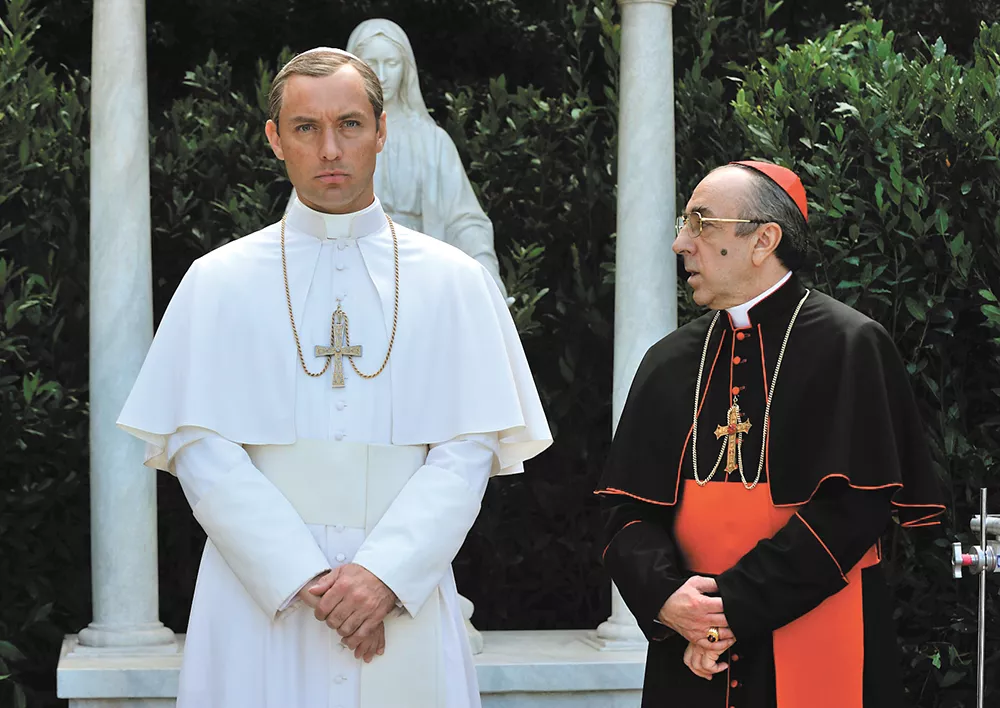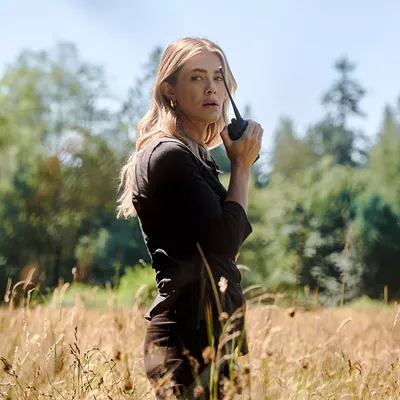
The final scene of the series premiere of The Young Pope (HBO, Sundays, 7 pm) features newly appointed Pope Pius XIII Lenny Belardo (Jude Law) confessing to a Vatican priest that because he does not believe God can save him from himself, he does not believe in God.
"What are you saying?!" the priest stammers. "Blessed father!?"
And then, as the priest continues to reel over the gravity of the revelation, Belardo grants him mercy.
"I was joking," Lenny says. And the priest lets out a relieved half-laugh, like a drowning man who's finally resurfaced. He was just joking. Supposedly.
This is The Young Pope in a nutshell: It likes to toy with the viewer. The Young Pope doesn't want you to know if it's ridiculously serious or seriously ridiculous. It doesn't want you to know whether it's going for great, or it's a big old joke. It's not that the show doesn't know. It just doesn't want the viewer to know.
After all, the seductive nature of the arcane and the mysterious is the show's entire premise.
At first it feints left, as the new Pope appears to nearly sweep away every bit of Catholic theology that clashes with Western cultural liberalism. And then, of course, it's revealed to be a dream sequence. Ultimately, Lenny is far more "strange and contradictory" than that, plotting to take the papacy back to a more opaque and unapproachable direction.
That this theme often succeeds is thanks to Law's performance; he makes every greeting sound like a threat, and every blessing sound like a loan that must be repaid with interest.
In this sense, The Young Pope seems similar in genre to House of Cards, the ponderous Netflix show about Kevin Spacey's Southern-accented scheming and his rise to the presidency. But House of Cards' surrounding characters and setting can't compare to Spacey's campiness.
The Young Pope, however, provides the insanity to match its central character. Dream sequences melt into fantasy sequences that shift into a sort of magical realism. A kangaroo shows up in the second episode. And the whole thing is consciously gorgeous: Every moment looks crafted and posed and iconic, as if etched in a stained-glassed window or painted by a Renaissance artist.
Belardo, who injects drama and import and high gravitas into the most minor interactions — say, imperiously requesting a Cherry Coke Zero — fits perfectly into this world. He is a contradictory man, but not a subtle one. But this is not a subtle world.



















